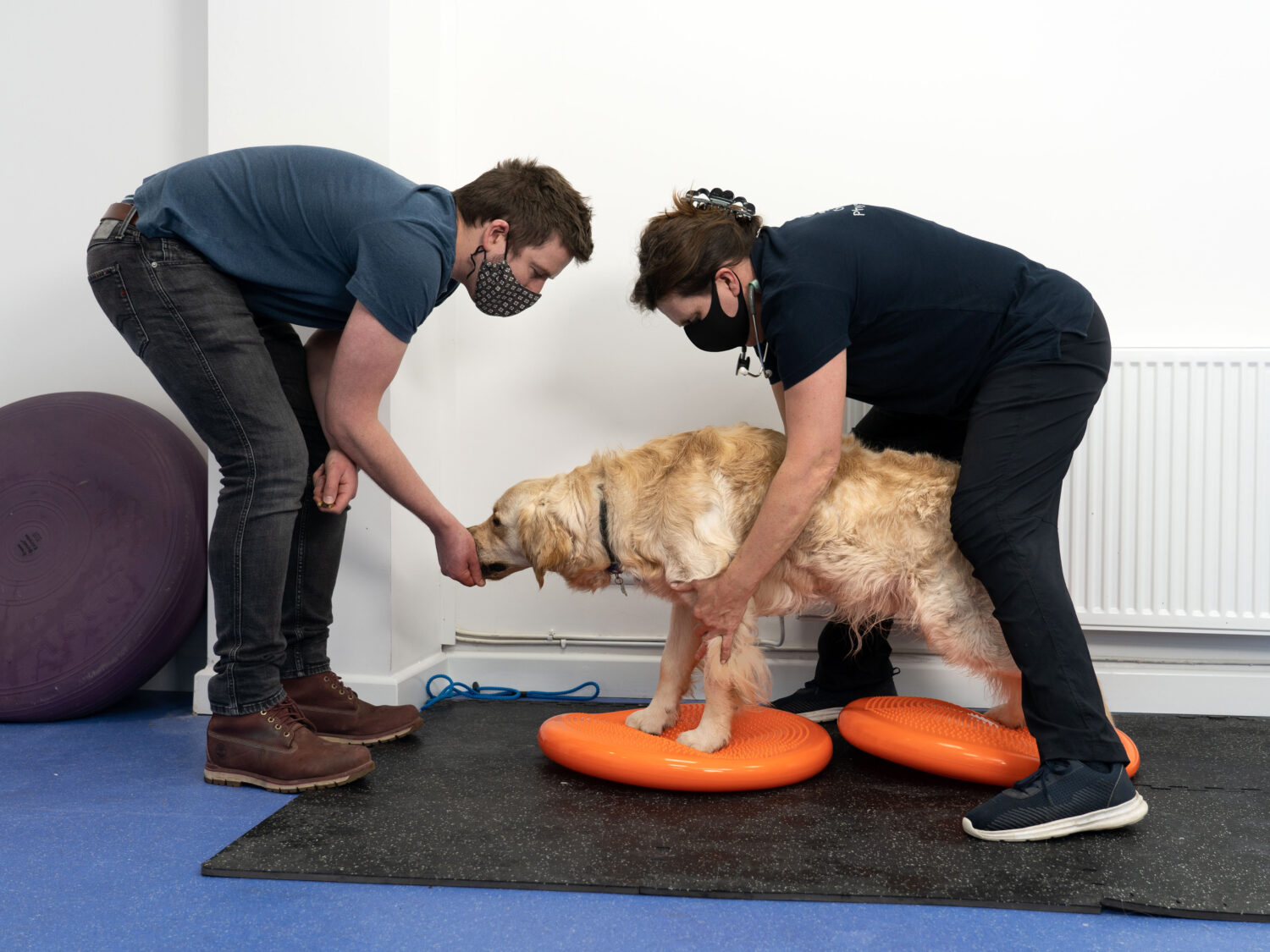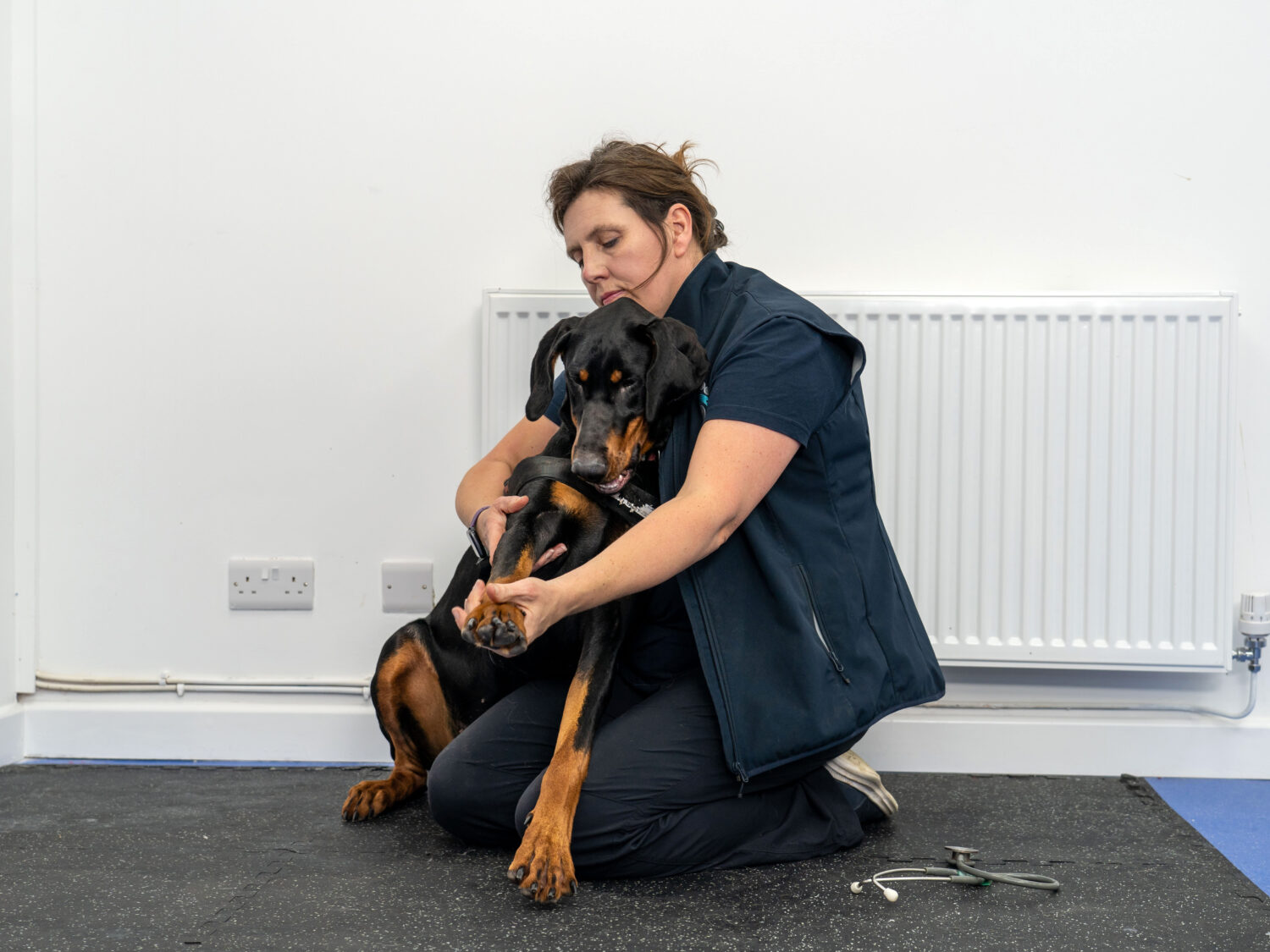Physiotherapy
The physiotherapy profession is well known for its contribution to physical health in the human population and has been growing fast within the veterinary world in recent years.

Why Physiotherapy?
Dogs , like ourselves can have unexpected injuries or painful degenerative conditions which could potentially benefit from physiotherapy. Some dogs are athletes and compete in their own right, others have important jobs but even the family pet may need an evaluation and guidance to recover from or manage a problem.
What does it do?
Veterinary physiotherapists provide specialist treatments for animals and can assist with easing pain, increasing joint range of movement and improving function and strength. In many conditions supporting the dogs management will contribute to improving the whole families quality of life.
Physiotherapy provision within the veterinary field is increasing and there are a number of professionals with an array of titles and qualifications, resulting in potential confusion over who to choose and what qualifications to look for

RAMP is the register which contains qualified Veterinary Physiotherapists.
Within that registrants who are governed by ACPAT
(Association of Chartered Physiotherapists in Animal Therapy) are also
chartered human physiotherapists ( and so governed by the Chartered Society
of Physiotherapy
ACPAT
The professionals in Animal Physiotherapy
In the UK there are over 70,000 Chartered physiotherapists who can treat people but less than 500 who hold the ACPAT A qualification and members work closely with vet profession. For more information please check out the ACPAT website.
Physiotherapy treatment can improve the wellbeing of a wide variety of domestic animals suffering from all kinds of health issues – from neurological conditions to soft tissue damage.

Typical presentations include:
- Hip Dysplasia and Elbow dysplasia
- Osteoarthritis/Degenerative Joint disease
- Cruciate ligament injury: Post operative rehabilitation
- Neurological disease or trauma causing neurological impairment
- Disc disease or prolapse
- Spinal stiffness or soreness
If you feel your dog might benefit from an assessment and treatment plan then you can discuss it with your vet to obtain a referral and we would be delighted to hear from you
Legally all animals must be referred by their vet before physiotherapy can commence and most vets are very happy to discuss cases who might be suitable. This is a positive thing and in all parties best interests.
We can help today
If you are an owner looking to improve your animals health and well being we would love to hear from you.